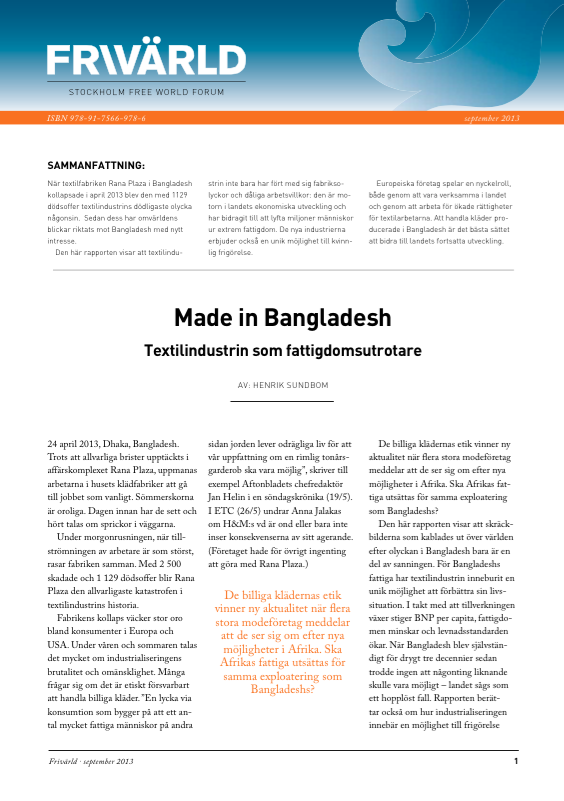On April 24, 2013, the textile factory Rana Plaza in Dhaka, Bangladesh, caved in. With 2,500 injured and 1,129 people killed, the collapse became known as the most serious catastrophe in the history of the textile industry. After the accident an anti-consumption wave swept over Europe and the U.S. Many started asking themselves whether it was ethically defendable to shop cheap clothes.
In his report Made in Bangladesh – the textile industry as a poverty eradicator, Henrik Sundbom reviews the importance of the textile industry for the development of Bangladesh. As the textile industry is growing, so is the country’s GDP. Poverty is decreasing and the living standard is rising. The report also shows how industrialization has given millions of young women an opportunity to liberate themselves from patriarchal structures.
The report was launched during a full seminar at Stockholm Free World Forum on the 30th of September. Helena Helmersson, responsible for CSR issues at H&M and Magdalena Streijfferrt, secretary-general at Fairtrade, also participated at the seminar.

